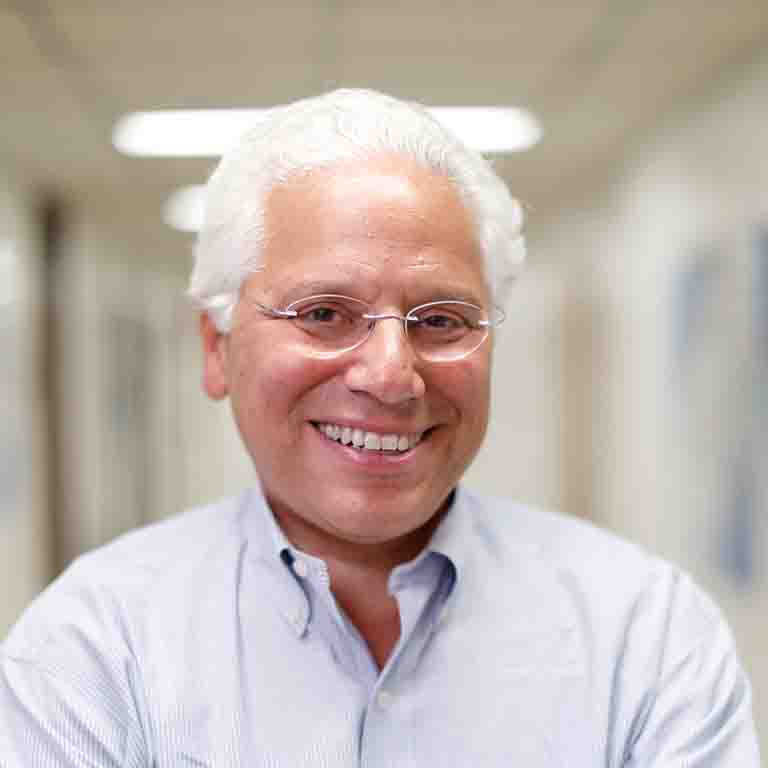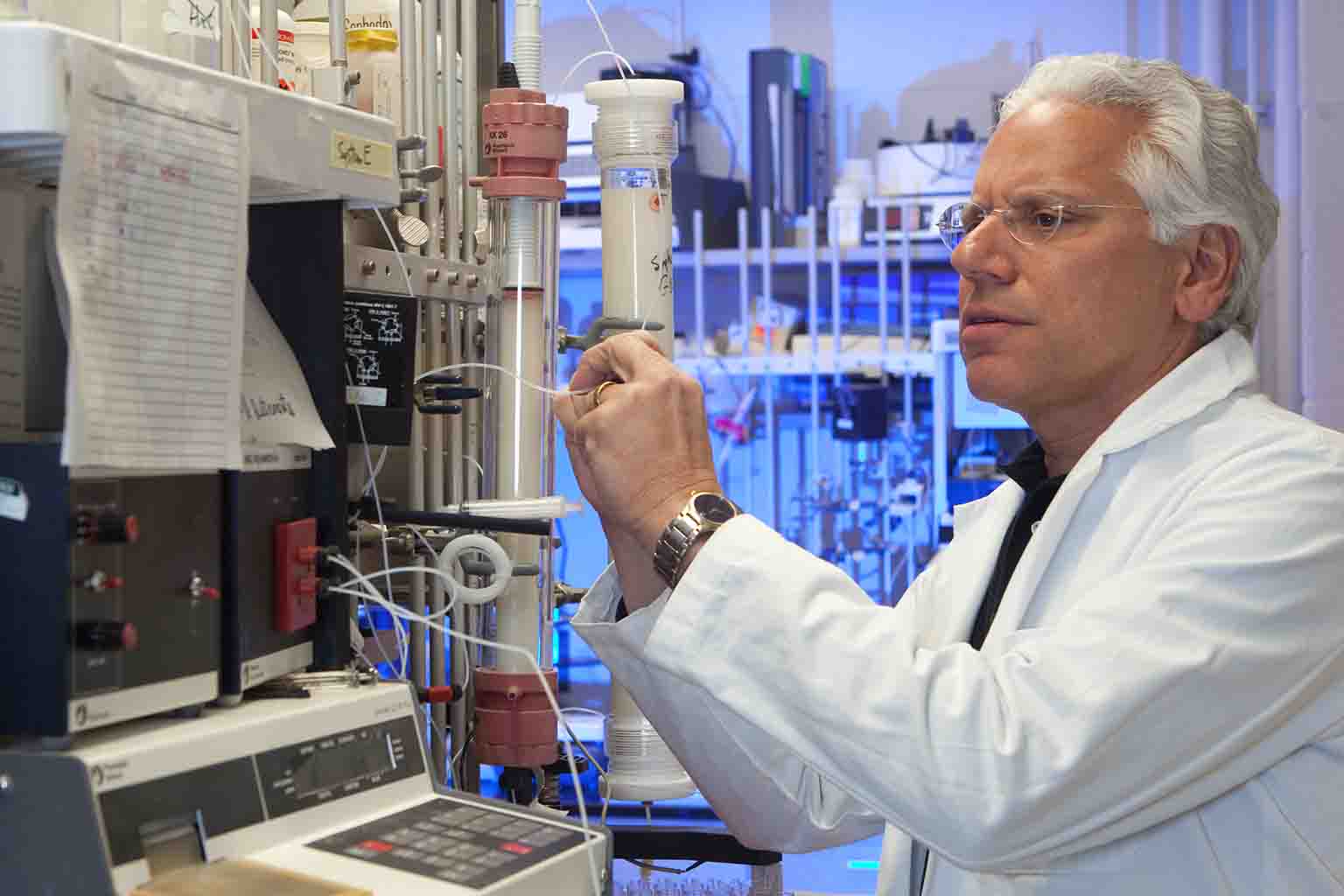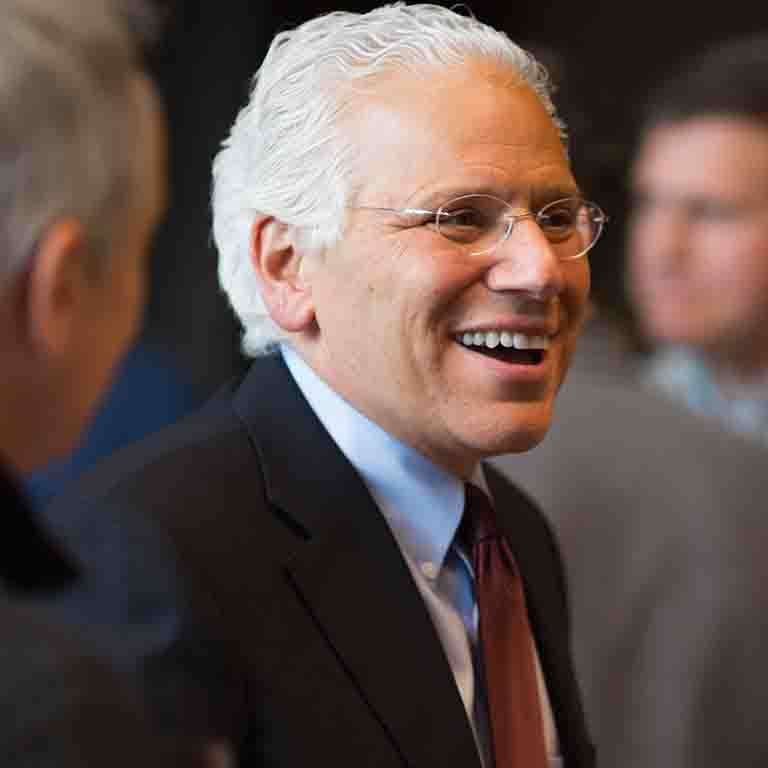Richard DiMarchi
His work is taking on new significance as the rate of adult-onset diabetes, driven by the obesity epidemic, continues to rise.
“More than 10 percent of adults across the globe have type 2 diabetes, and many of them don’t even realize it,” he says.

A pioneering researcher
DiMarchi, the Standiford H. Cox Professor of Chemistry and the Linda and Jack Gill Chair in Biomolecular Sciences at Indiana University, is one of the pioneers in the field of chemical biotechnology, in which researchers use nonnatural amino acids to optimize macromolecules such as peptides and proteins for medicinal use. The optimized macromolecules have enhanced therapeutic properties that make them superior drugs to those found in nature.
DiMarchi began his career at Eli Lilly and Company, where he led the discovery and development of rDNA-derived Humalog, the first rapid-acting insulin analog. He also contributed to the development of Humulin, Forteo, and other drugs to treat endocrine diseases.
Let’s hope that these successes are bigger than just me or my laboratory.
A promising development
After joining the IU faculty in 2003, DiMarchi began working with glucagon, a peptide hormone that is used to correct hypoglycemia, also known as low blood sugar. He wanted to create something like the EpiPen, an epinephrine auto-injector used to treat anaphylaxis, to quickly deliver glucagon to diabetics suffering from life-threatening hypoglycemia.
DiMarchi and his IU research team succeeded in designing a glucagon molecule stable and soluble enough for immediate use. He then worked with Indiana University Research and Technology Corporation to commercialize his discovery, launching a startup company called Marcadia Biotech in central Indiana.
Further studies with glucagon revealed that it can lower body weight, and following chemical optimization with additional hormonal activity, it was advanced as a potential treatment for obesity. Marcadia subsequently formed collaborative drug development partnerships with Merck and Lilly Research Laboratories.



A lifetime of accomplishment
In addition to Marcadia Biotech, which was acquired by Roche in 2010, DiMarchi is a co-founder of four other biotech startups: Ambrx, Assembly Biosciences, Calibrium, and MB2. In August 2015, Novo Nordisk announced its intention to acquire Calibrium and MB2, which like Marcadia are based on research from DiMarchi’s IU laboratory. He also serves as a scientific advisor to several other life sciences companies and three venture funds.
DiMarchi has received numerous accolades for his work, including the American Chemical Society’s 2016 Alfred Burger Award for career contributions to medicinal chemistry, the Helmholtz Association’s 2014 Erwin Schrödinger-Preis, and the American Peptide Society’s highest honor, the Merrifield Award, in 2011. In 2014, he was inducted into the National Inventors Hall of Fame.
Since joining the IU faculty in 2003, DiMarchi has been named as an inventor on more than 160 global patents.
Setting a precedent
Despite his companies’ commercial success, DiMarchi doesn’t consider himself a businessperson. For him, starting the companies was first and foremost to advance basic discoveries to clinical testing. “It’s all about what is needed to translate ideas into medicines,” he says.
DiMarchi hopes that the trail he has blazed will set a precedent that will make it easier for other IU researchers to commercialize their discoveries. He firmly believes that one day his own contributions will seem trivial in comparison to the discoveries made by those who follow in his footsteps—especially the students he has trained, who represent a treasured part of his legacy.
“Let’s hope that these successes are bigger than just me or my laboratory,” he says. “The most important objective going forward is to create a process for drug discovery that is self-sustaining.”
Learn how College of Arts and Sciences researchers are changing the world.


